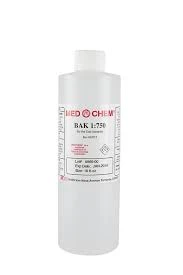Applications and Benefits of Poly Aluminum Chloride in Various Industries
The Versatile Uses of Poly Aluminum Chloride
Poly Aluminum Chloride (PAC) is a widely used inorganic polymer primarily utilized as a coagulant in various applications. Its unique properties make it an advantageous chemical in water treatment, wastewater management, and various industrial processes. This article delves into the uses of PAC, emphasizing its importance across different sectors.
Water Treatment
One of the most significant applications of Poly Aluminum Chloride is in water treatment. PAC is widely employed in drinking water purification, as it effectively removes turbidity and contaminants. When introduced to water, PAC forms a gelatinous precipitate that adsorbs particles, including suspended solids, organic matter, and microorganisms. This process helps in clarifying water, making it safe for consumption. The effectiveness of PAC in enhancing the sedimentation process has made it a preferred choice over traditional alum coagulants due to its lower dose requirements and improved coagulation efficiency.
Wastewater Treatment
In the realm of wastewater treatment, PAC plays a critical role in facilitating the separation of solids from liquids. Wastewater generated from industrial processes often contains high levels of contaminants, which require effective removal before discharge or recycling. PAC’s ability to coagulate and flocculate these contaminants ensures that the solids settle efficiently. This is vital not only for complying with environmental regulations but also for enhancing the overall efficiency of wastewater treatment facilities. The use of PAC leads to reduced sludge volume and better-quality effluent, thereby minimizing the environmental impact.
Paper Manufacturing
The paper industry also benefits from the application of Poly Aluminum Chloride. PAC is used as a retention aid during the papermaking process, which helps retain fine fibers and fillers in the paper, ultimately improving the quality and consistency of the final product. By enhancing the retention of these materials, PAC reduces the amount of raw materials required, leading to cost savings and environmental benefits. Additionally, PAC aids in improving the drainage of water from the pulp, making the production process more efficient.
poly aluminum chloride uses

Textile Industry
In the textile industry, PAC is employed as a dye fixative and a mordant. Its ability to bind dyes to fabrics ensures that colors remain vibrant and durable after washing. By using PAC, textile manufacturers can achieve better color fastness while reducing water pollution from dye effluents. The use of PAC not only enhances the quality of textile products but also contributes to more sustainable manufacturing practices.
Food Processing
Poly Aluminum Chloride is also utilized in the food processing sector, particularly in the production of edible oils and fats. It helps in the decolorization and purification of oils, removing impurities that may affect flavor and quality. Furthermore, PAC can be employed in the treatment of water used in food processing, ensuring that all water is clean and safe, while maintaining the integrity of food products.
Agriculture
In agriculture, PAC finds its application as a soil conditioner and a flocculant in irrigation systems. It helps improve soil structure and nutrient retention, leading to enhanced crop yields. PAC can also be used in runoff water treatment from agricultural fields, reducing the risk of water pollution by capturing excess nutrients and contaminants before they enter water bodies.
Conclusion
In conclusion, Poly Aluminum Chloride is a versatile chemical with a wide range of applications across various industries. Its effectiveness as a coagulant in water and wastewater treatment is invaluable in promoting public health and environmental sustainability. Additionally, its roles in the paper, textile, food processing, and agricultural sectors underscore its importance in enhancing product quality and operational efficiency. As industries continue to seek sustainable alternatives to traditional chemicals, the demand for PAC is likely to grow, solidifying its position as a crucial component in modern industrial processes. The myriad uses of Poly Aluminum Chloride demonstrate its potential to contribute significantly to both environmental protection and quality improvement across a spectrum of applications.
-
The Power of Isothiazolinones in Modern ApplicationsNewsMay.08,2025
-
Flocculants in Water TreatmentNewsMay.08,2025
-
Flocculants and Chemical Solutions: What You Need to KnowNewsMay.08,2025
-
Flocculants and Chemical Solutions: A Growing IndustryNewsMay.08,2025
-
Essential Chemicals: Polymaleic Anhydride and MoreNewsMay.08,2025
-
Acrylic Polymers: Essential Solutions for IndustryNewsMay.08,2025





